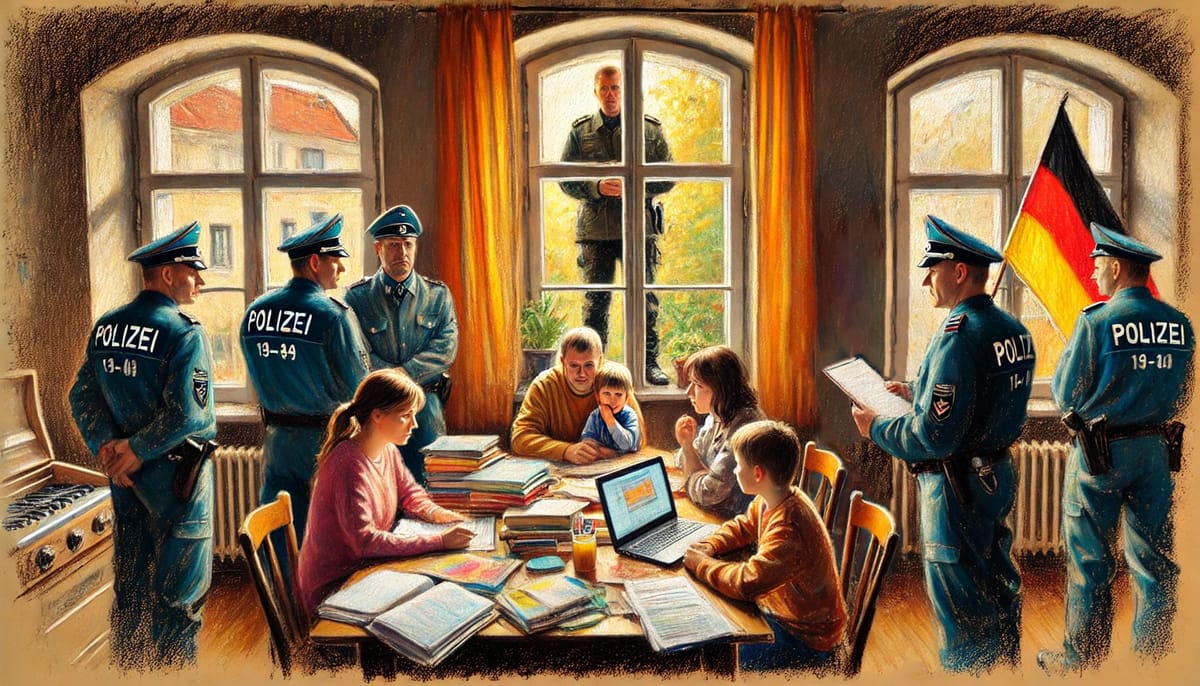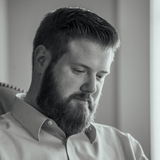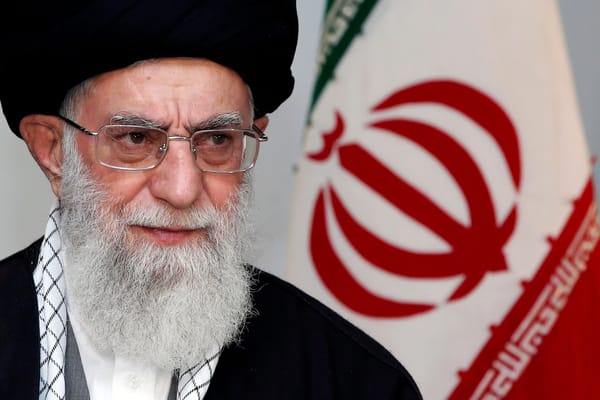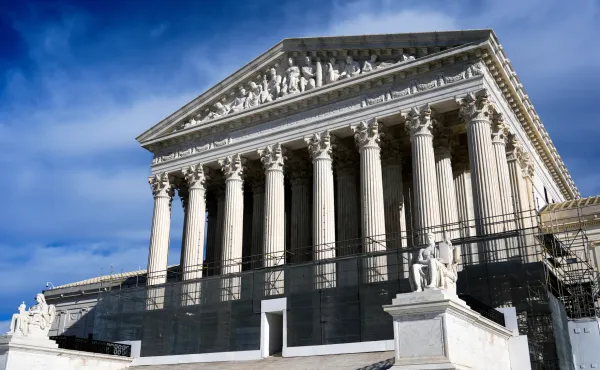Parallel Societies and the Struggle for Liberty
As we gather this Thanksgiving to reflect on the blessings of faith, family, and freedom, we are reminded of the renewed challenges and slander we have faced in the media. History often casts long shadows, and beneath the warmth of our celebrations lies a solemn truth: the liberties we cherish today

A Thanksgiving Reflection
Greetings
As we gather this Thanksgiving to reflect on the blessings of faith, family, and freedom, we are reminded of the renewed challenges and slander we have faced in the media. History often casts long shadows, and beneath the warmth of our celebrations lies a solemn truth: the liberties we cherish today were hard-won through trials that required sacrifice in the face of intolerance.
The struggle for conviction and conscience against the tide of conformity remains ongoing. This Thanksgiving, let us not only express gratitude for what we have but also reflect on the lessons of the past, confront the challenges of the present, and renew our prayer for a future where liberty and faith may flourish without fear.
Berlin, 1935: Shadows of Intolerance
It was a bitter November evening in Berlin, 1935. The flickering streetlights cast long shadows on cobblestone streets as the Reichstag convened to pass what would become known as the Nuremberg Laws. These chilling statutes were not mere legal formalities; they were harbingers of terror, stripping Jews of citizenship, rights, and humanity.
The ink had barely dried before Jewish businesses were shuttered, Jewish children expelled from schools, and an entire community systematically erased from public life. Behind these calculated laws lay a sinister premise: a nation cannot tolerate the coexistence of a parallel society. This ideology justified the persecution of Jews and ultimately laid the foundation for the Holocaust, where over six million Jews perished—victims of firing squads, gas chambers, forced labor, and starvation.
A Modern Echo of an Old Shadow
Seventy-five years later, in 2010, Germany seemed a different world. Angela Merkel presided as chancellor over a nation that wore its progressivism as a badge of honor, confident it had moved beyond the darkness of its past. Yet for the Romeike family—a devout Christian household in Baden-Württemberg—the shadows of history fell uncomfortably close.
Troubled by a mandatory secular curriculum that included philosophies and sex education contradicting their faith, the Romeikes made a bold decision: they would home-school their children. In Germany, home schooling is seen as a direct affront to the state.
The German government invoked post-World War II laws to argue that home schooling threatened societal unity. However, it did not cite that the legal foundation and language it relied on originated in statutes forged under the Third Reich.
In 1938, the Reich extended its Reichsschulpflichtgesetz (Compulsory Education Law) to make state-approved schooling inescapable, a measure designed to eliminate Jewish schools and ensure ideological conformity. These same laws, once used to destroy Jewish religious and cultural identity, were now wielded to suppress Christian home-schooling families like the Romeikes.
The logic was identical: a nation must not permit parallel societies. The State should remain the preeminent collective with no competing allegiances. The same ideological blade used to sever Jewish life in Nazi Germany now threatened the Romeikes’ right to live according to their convictions.
Bound by the State
Like Gulliver tied down by the Lilliputians, the Body of Christ in modern Western societies often imagines itself free—free to live, speak, and dissent—until it moves against the system. Then, it discovers the invisible chains. It is bound to conformity, bound to immobility—bound to bear no image but Caesar’s.
The Romeikes faced mounting pressure. The government issued fines, warnings, and ultimately threatened to strip them of custody of their children. Determined to protect their faith and shield their children from State indoctrination, the family made a desperate decision: they fled to the United States.
Arriving in America, the Romeikes appealed for asylum, arguing that their right to raise their children according to their faith was being trampled. A Tennessee judge initially ruled in their favor, recognizing their plight as religious persecution. But this hope was short lived.
The Obama administration swiftly intervened, opposing the Romeikes’ case. U.S. government lawyers argued that parents do not have an inherent religious right to educate their children outside the State’s framework. Ultimately, the courts upheld this position, rejecting the Romeikes’ plea. Having defeated the Romeikes’ claim of a religious right to educate their kids, the Obama administration swiftly granted them U.S. residency to look magnanimous, even while sending a clear message that home schooling was not a protected parental right.
Then, in September, 2023, the Romeikes were ordered without prior warning or explanation to apply for German passports and self-deport within four weeks. This has been delayed twice, and their permission to remain in the U.S. has been extended another year, with their status again to be decided in October, 2025. After sixteen years, they continue to live under the fear of deportation because of the American federal government’s continuing refusal to recognize the religious freedom claim of this persecuted Christian family.
The Unfinished Story
By invoking Nazi-era principles to deny a Christian family the right to home-school, Germany validated the totalitarian logic it claimed to have buried. Even more troubling, the West—champion of liberty and pluralism—joined in the betrayal, reinforcing the notion that the State’s authority supersedes the sacred bond of parents and their children.
The Romeikes’ story is not theirs alone. It reminds us that the ideology of conformity—often lauded as “popular opinion”—can devolve into oppression against dissenters. A society that elevates cultural homogeneity above faith, parental rights, and freedom of expression is doomed to repeat the sins of its past, even while parading under the banners of modernity and reason.
The Roots of Intolerance: A Lesson from History
The Holocaust was not an isolated tragedy but the product of a culture conditioned to reject and suppress parallel societies. Historian Franklin Littell argued that systemic bigotry and genocide are not born in a vacuum but are cultivated through scapegoating, marginalization, and the silencing of dissent—a pattern deeply rooted in Germany’s Reformation era.
In the mid-1500s, as Lutheranism rose to dominance, it clashed with the radical Reformers, the Anabaptists. These believers rejected the state’s authority in spiritual matters, championing a complete separation of church and state. They believed Christ’s kingdom advanced through truth, grace, and lived faith—not through coercion or violence. This conviction directly opposed the Protestant adherence to the Constantinian fusion of religion and politics, provoking fierce hostility.
The response was ruthless. Anabaptists were slandered, heavily fined, stripped of their property, and executed en masse. German states sought to eradicate their movement entirely, reportedly killing every Anabaptist minister within their borders. This systematic suppression of dissent set a precedent, construing nonconformity as a threat and justifying its elimination.
Rather than being embraced as fellow reformers who were moving toward greater consistency with the Biblical roots of Christianity, the Anabaptists were exterminated—an appalling irony in the cradle of the Protestant Reformation. The magisterial Reformers persecuted Anabaptists by linking the entire movement to the isolated violence of a few figures like Thomas Müntzer, using the threat of a "Münsterite rebellion" to justify their systematic extermination.
Franklin Littell’s analysis makes a sobering point: had Germany learned to tolerate the Anabaptists, it might never have succumbed to Hitler’s ideology or the horrors of the Holocaust. The refusal to accept a parallel society created a culture of scapegoating and suppression, which metastasized into systemic persecution and genocide. Littell argued that atrocities like the Holocaust are not sudden but are cultivated in societies that reject dissent and enforce conformity.
It is no small matter when the dominant culture targets minority faith groups or ethnic communities. The pattern is hauntingly familiar: label them as heretics, spread malicious gossip, hold them to a double standard that the majority itself cannot meet, and ostracize them. Call them “cults,” smear them as dangerous and “violent” and thus evoke fear and demand conformity: “If you don’t abandon your distinct ways and become like the rest of us, you will be vilified, marginalized, and, eventually, destroyed.”
Gratitude and Unity
As we enter this Thanksgiving season, reflecting on all we have to be grateful for—our children, our freedoms, our health, and our flourishing—I consider that fateful November in Germany nearly ninety years ago, when centuries-old threads of bigotry were woven into the fabric of German law. Those same threads still entangle Christians like the Romeikes today. Yet, I thank God that despite the loud voices in our American culture that scorn intentional, distinctive communities and weaponize fear to enforce conformity and control, there are still those willing to reach across dividing walls, offering friendship and grace.
This is America—a place where you are still free to be different without certain ruin. Such ideals were foreign to Nazi-era Germany's ideology and, tragically, remain so to certain elements of its modern policies. U.S. administrations have also disregarded these principles. Yet we thank God for all who will join us this weekend for our annual Thanksgiving Festival to learn with us, eat wonderful food, worship together, and renew the bonds of friendship and community.
May God help us to ever discern the difference between rejecting ideas or practices versus rejecting the person who holds to them. Especially in this time of deep polarization between contrasting viewpoints, we must be able to disagree—even vehemently—with our neighbors and yet take their hands in friendship, share meals, laugh together, and embrace one another as fellow pilgrims. This respect, humility, and openness are essential to realize a greater unity the church has not widely known since the days of the apostles. May God increase this spirit in our hearts, teaching us to collaborate, learn, grow, and flourish together as members of the universal Body of Christ.
I send you warm greetings, wishes for a joyous Thanksgiving feast, and prayers for a safe and meaningful start to this holiday season. Let us renew our gratitude for the freedoms we hold dear and for the respect and tolerance that remain a hallmark of American Christendom, extended even toward those who are different—people like us.
HAPPY THANKSGIVING!





